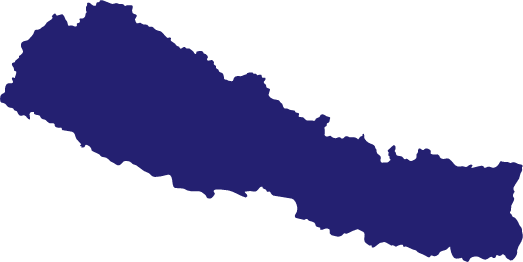News
News and Updates from FP2030
April 1, 2022
FP2030 Newsletters
Previous

How family planning is re...
Next

Announcing FP2030 Hubs in...
Source:FP2030
Topics:
Adolescents & Youth
Building 2030
COVID-19 & Family Planning
Postpartum & Post-Abortion Family Planning
Dear colleagues,
The first 12 months after giving birth are one of the most vulnerable times in a woman’s life. It’s when her need for family planning is greatest — her health and the health of her child depend on it — but it’s also when that need is least likely to be met. The numbers are startling: 95% of postpartum women in low- and middle-income countries want to delay or avoid another pregnancy within the next two years, yet 70% aren’t using contraception. The World Health Organization (WHO) recommends 24 months of spacing between live birth and future pregnancies to reduce the risk of adverse maternal, perinatal, and infant outcomes.
Postpartum family planning (PPFP) and post-abortion family planning (PAFP) efforts to reach women and girls during and after pregnancy are proven and effective, as outlined in detail in the Family Planning High Impact Practices on immediate PPFP and PAFP. Throughout their pregnancy and delivery, women are already interacting with doctors, pharmacists, community health workers, and other health professionals who can also provide potentially lifesaving family planning education, services, supplies, and rights-based contraception.
Of course, the COVID-19 pandemic has led countries and communities to worry about losing the valuable gains made in PPFP/PAFP globally. We’re happy to share several success stories in this issue of the newsletter, as well as some insight from colleagues working to advance PPFP/PAFP. Colleagues in the FP2030 PPFP/PAFP Steering Committee recently released an insightful commentary regarding opportunities and challenges of delivering postabortion care and postpartum family planning during the pandemic. Knowledge SUCCESS also offers recommendations related to integrating PPFP/PAFP for diverse populations of women and highlights how to involve communities in Inside the Inside the FP Story Podcast, Episode Two: Integrating family planning with other health areas and settings. Pathfinder also details remarkable PPFP/PAFP gains made during the pandemic in Uganda.
Thank you to our partners for sharing the PPFP/PAFP successes and challenges they’ve encountered. As many of you know, FP2030 is transitioning to a decentralized, regional hub structure (we shared the locations of two of the regional hubs Monday), and PPFP/PAFP will remain a priority at every hub. We will continue to advocate for the rights of all people, including those who are postpartum and postabortion, to access and obtain reproductive health services safely and on their own terms.
Warmly,
Hima Patel
Family Planning Integration Manager
Building FP2030
FP2030 announced the locations of the first two regional hubs outside North America: The North, West, & Central Africa Hub is located in Abuja, Nigeria, and hosted by Population Council, Nigeria. The East & Southern Africa Hub is in Nairobi, Kenya, and is hosted by Amref Health Africa. Learn more about the hubs on our website, and on a special episode of The Pulse of Family Planning with Dr. T, featuring Samu Dube, FP2030 Executive Director.
FP2030 is currently hiring for a Finance and Grants Officer and a Business Development Manager.
FP2030 is updating its email list! Fill out this form to continue receiving news and updates from FP2030, including our monthly newsletter, event announcements, and updates on our transition and new structure.
Rapid Response Mechanism Success Stories: Postpartum and Post-abortion Family Planning
The FP2020 Rapid Reward Mechanism (RRM) provided small grants to fund time-sensitive projects that needed immediate intervention to catalyze regional progress. RRM-funded projects either responded to a recent change in the family planning operational environment in the country or worked toward a specific upcoming opportunity to advance family planning. Although RRM is no longer dispersing grants, several RRM-funded projects sparked the advancement of PPFP goals or programs in their regions. Learn more about these projects below.
 |
Integrating Family Planning in Obstetrical Services in CongoThe Roman Catholic Archdiocese of Bukavu, a 2019 RRM grantee, integrated family planning (FP) in obstetric services in clinics in Congo’s South Kivu province. The project targeted 20 public hospitals and 20 health centers within 10 health zones (including 20 community health workers who worked across multiple zones) to address newly developed directives on standard procedures in PPFP/PAFP. Thirty hospital managers received training in PPFP methods, program management, and monitoring and evaluation. This was the providers’ first-ever training in PPFP/PAFP. |
|
 |
Accelerating Access to Postpartum Family Planning in 6 states in NigeriaBALSDA (the Balanced Stewardship Development Association), a 2019 RRM grantee, worked with health commissioners in six Nigerian states (Cross River, Enugu, Gombe, Kaduna, Nasarawa, and Oyo) to develop and enact state-level policies on integration of PPFP services into maternal and child health services, including antenatal care, delivery, and immunization programs. Crucially, policies stipulated that women receive counseling at various points of contact with the health system, which had not previously been the accepted practice in the target states. |
|
 |
Strengthening Post-abortion Family Planning Services in 72 Health Facilities in NepalIpas Nepal, a 2020 RRM grantee, trained health care providers on PAFP to improve contraceptive uptake in Nepal in response to the Safe Motherhood and Reproductive Health Rights Act. The law defined and affirmed rights to high-quality family planning and safe abortion services, mandated free reproductive health care at public health facilities, required all levels of government to allocate resources to reproductive health care, and permitted abortion for up to 12 weeks of pregnancy (and up to 28 weeks in cases of rape or incest). As part of its RRM grant, Ipas Nepal trained 15 national FP trainers on FP updates and Balanced Counseling Approach (BCA), and 56 service providers from 48 facilities were trained on implant and BCA. Clients can now receive implant and BCA services in a single visit, bringing the 72 target facilities in line with High Impact Practice in FP and improving access to post-abortion care. |
Driving PPFP Growth: Pathfinder in Uganda

In 2020, with support from USAID, Pathfinder tested a Continuous Quality Improvement approach so facilities could understand their needs and challenges in delivering PPFPThis program had tremendous results, enabling them to develop quality improvement indicators, design interventions based on assessment of these indicators, and strengthen health systems. Find out more in this success story from Uganda.
In Other News
Want to learn more about PPFP and PAFP? Don't miss two relevant High Impact Practices (HIP) in Family Planning: The first on proactively offering voluntary contraceptive counseling and services at the same time and location where women receive facility-based post-abortion care, and the second on offering contraceptive counseling and services as part of facility-based childbirth care prior to discharge from the health facility.
Additionally, the HIP Partnership is pleased to announce the release of its newest product: Meaningful Adolescent and Youth Engagement and Partnership in Sexual and Reproductive Health Programming: A Strategic Planning Guide.
In the Inside the FP Story podcast, Episode Two, guests from Tanzania, Nigeria, and Bangladesh examine how to involve communities in family planning, including highlighting a Clinton Health Access Initiative (CHAI) program in Nigeria that integrates family planning and long-acting reversible contraceptive access with postpartum care.
Recommendations on integrating PPFP/PAFP during COVID-19, available in English and French.
Written by members of the FP2030 PPFP/PAFP Steering Committee who are experts in the world of family planning, this commentary explores the opportunities and challenges that COVID-19 presents for PPFP and PAC.
Mark Your Calendars
Tackling Provider Bias in Contraceptive Service Delivery: An evolution of the beyond bias project
Pathfinder, Beyond bias, Y-Labs, RAND, CAMBER
March 30th, 11 am
Register
Working to Transform Health Systems to Respond to the Needs of Adolescents
FP2030
March 31, 8 am
Register
Consultation with FP/SRH Stakeholders on the Dual Prevention Pill
AVAC, FP2030
April 12th, 8:30 am
Register








